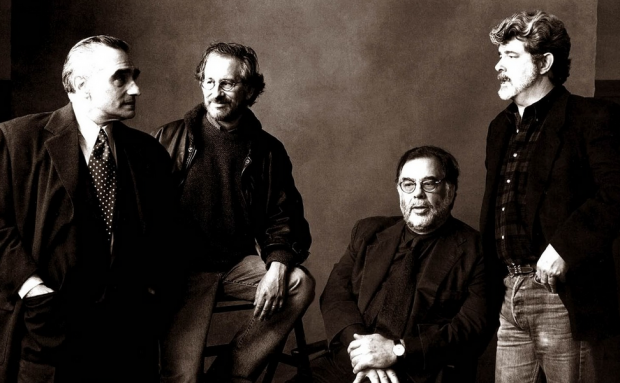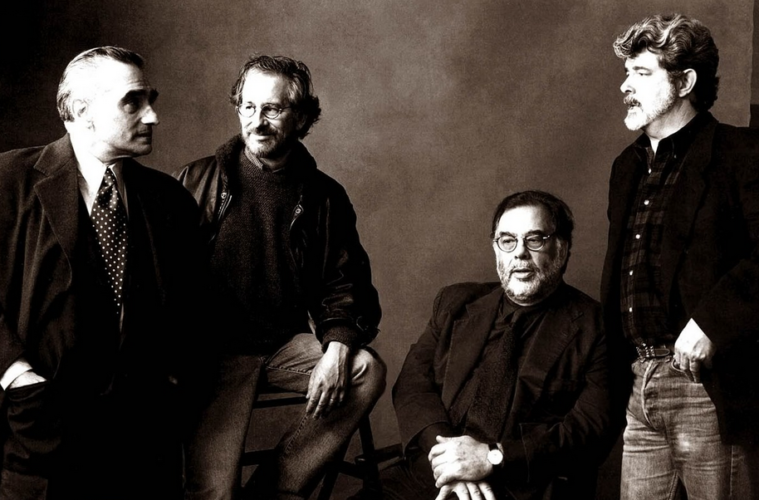
As introduced by a very reverent John Lithgow, the hour-long documentary “The Film School Generation” — made in 1995 as part of an omnibus TV project entitled American Cinema — is currently available to watch on YouTube. Revolving primarily around five directors from that most famed group of young filmmakers — Francis Ford Coppola, Brian De Palma, George Lucas, Martin Scorsese, and Steven Spielberg — the film, while mostly dealing in broad, well-established narratives of the era, still provides some useful background on the men behind such recent or upcoming releases as Passion, Twixt, and The Wolf of Wall Street.
Along with the aforementioned band of artists, other interview subjects include: Peter Biskind, author of the popular 1998 book Easy Riders, Raging Bulls; Lynda Myles, co-author of the 1984 book The Movie Brats; USC alum John Milius, the writer-director of Dillinger and Big Wednesday, as well as an Oscar nominee for Apocalypse Now; legendary film editor and sound artist Walter Murch, a key early collaborator of Lucas and Coppola (his work with the latter has persisted all the way to Tetro); and, of course, Taxi Driver screenwriter Paul Schrader (whose own directorial work of the time period, rather unfortunately, isn’t discussed).
In addition to outlining some of the more well-known storylines of the 1970s American cinema — the blockbuster influence of Jaws and Star Wars, the mammoth ambitions of the San Francisco-based American Zoetrope, the notion that the Hollywood of this “Golden Age” encouraged these directors to indulge in “personal expression” — “The Film School Generation” offers a few choice anecdotes, like Mean Streets producer Jonathan Taplin’s story about how, during a private studio screening of Scorsese’s film, certain industry figures thought it acceptable to order lunch. There’s also some talk of the cultural differences between the three film-school behemoths: USC (slick, industry-friendly), UCLA (hippie, hallucinatory), and NYU (unpolished, street-gritty).
Watch it below in full:
What did you think of the documentary? Did you learn anything new about this period in American cinema?

